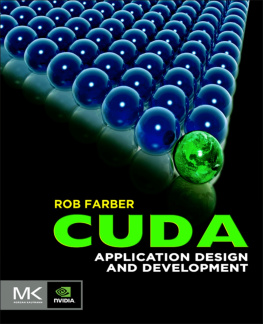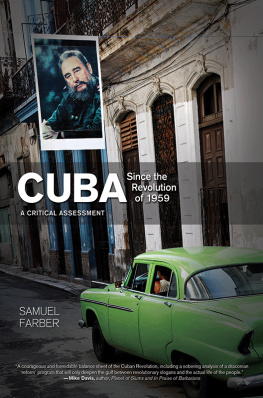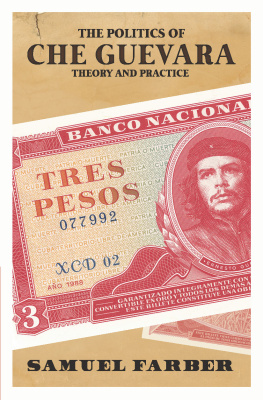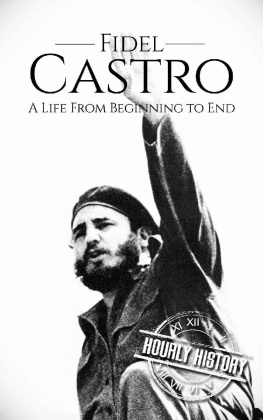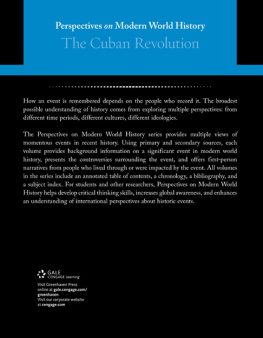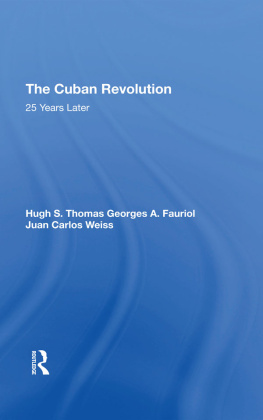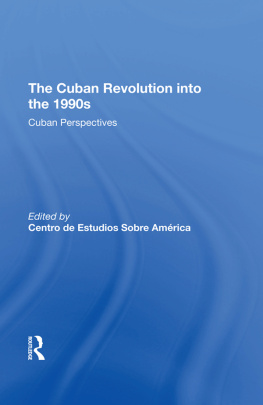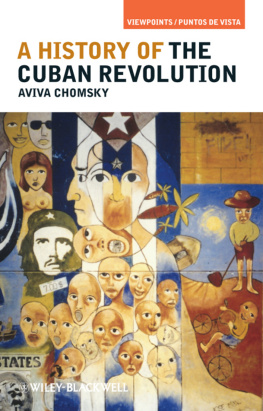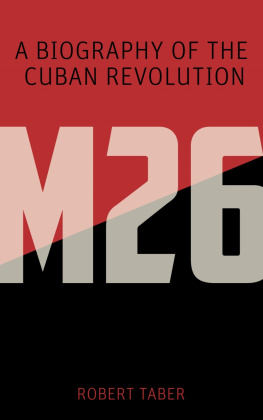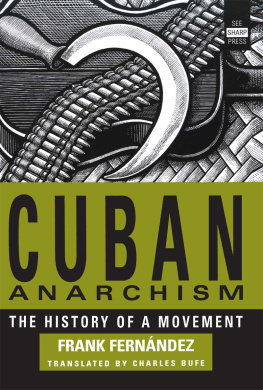Acknowledgments
I am grateful to Professor Sherry Warman and the staff of the Interlibrary Loan Department of the Brooklyn College Library for their valuable assistance in obtaining the materials necessary for my research. I also thank the Professional Staff Congress (American Federation of Teachers Local #2334) and the City University of New York for a PSC-CUNY Award for release time from teaching that helped me to finish this project.
I owe special gratitude to a number of people who have criticized and commented on partial and complete drafts of the manuscript while it was in preparation: Csar Ayala, Mel Bienenfeld, Adolfo Gilly, Dan Labotz, Corey Robin, and Francisco Sobrino. I owe special thanks to Thomas Harrison, whose editorial assistance played an important role in the development of this project.
I am deeply indebted to an anonymous reader for the University of North Carolina Press who provided me with very valuable criticisms and insightful comments. Professor Louis A. Prez Jr. read my entire manuscript as a reader and adviser to the University of North Carolina Press and made numerous penetrating and useful criticisms. He also made himself available for several very helpful telephone consultations. I thank him for his generosity and graciousness. I am solely responsible for the views expressed in this book.
This project could not have been carried out without the invaluable and unstinting editorial guidance and support of Elaine Maisner, senior editor at the University of North Carolina Press. I thank her warmly. I am thankful as well to Ellen Goldlust-Gingrich and Ron Maner, respectively copyeditor and project editor for this book.
I give special thanks to my stepson, Daniel Marks, for his technical help in preparing this manuscript for publication. To my wife, Selma Marks, I owe eternal gratitude not only for her detailed criticisms but also for her limitless support, patience, and endurance.
Chronology
Major Events in Cuban History, 18681961
186898Cubans wage war against Spain during most of this period.1898Battleship Maine explodes in Havana harbor, and the United States declares war on Spain. Subsequent peace treaty makes Cuba a U.S. protectorate.1901Platt Amendment is attached to the Cuban constitution, granting the United States the right to intervene in Cuban affairs.1902Cuba is officially declared independent, although Platt Amendment restrictions on its sovereignty remain.1903United States and Cuba ratify and enact reciprocal trade agreement.19069United States intervenes in Cuba (second time).191722United States intervenes in Cuba (third time).192533Gerardo Machado rules as dictator.1933Machado dictatorship is overthrown on August 12. On September 4, Sergeant Fulgencio Batista leads revolt with the support of civilian revolutionaries. Ramn Grau San Martn becomes provisional president. U.S. government, which had been actively intervening in Cuban politics both before and after Machados overthrow, does not recognize Grau government.1934Batista, with U.S. support, removes Graus nationalist government. Platt Amendment is officially abolished, although United States retains in perpetuity a naval base in Guantnamo Bay. Cuba and the United States sign new reciprocal trade agreement.193440Batista, as head of the army, controls Cuba through puppet governments.1940New Cuban constitution is adopted.194044Batista rules Cuba as constitutional president.194448Grau, leader of the Autntico Party, serves as president.194852Autntico leader Carlos Pro Socarrs succeeds Grau as president.March 10, 1952Batista overthrows Pro in military coup.July 26, 1953Attack on Moncada barracks fails, and the Castro brothers and many followers are imprisoned.May 15, 1955Batista decrees political amnesty, and the Castro brothers, their followers, and other political prisoners are released from prison.December 2, 1956The Granma lands in Oriente Province, bringing Fidel Castro and his followers from Mexico.March 13, 1957Attack on Presidential Palace by Directorio Revolucionario fails.April 9, 1958General strike fails.July 1958Batista army offensive against rebels in Oriente Province fails.January 1, 1959Batista flees Cuba, and 26th of July Movement rebels take over.May 1959Agrarian reform law is enacted.October 1, 1959Unofficial Soviet envoy Aleksandr Alekseev arrives in Cuba to establish direct link between the Soviet Union and Cuban government.February 4, 1960Soviet leader Anastas Mikoyan arrives in Cuba and signs trade treaty with Cuban government.March 1960U.S. government adopts systematic covert action plans to overthrow Cuban government. Plans had been in preparation since late 1959.May 1960Fidel Castro achieves complete control of Cuban press and mass media. Soviet Union and Cuba resume full diplomatic relations.JuneJuly 1960U.S.-owned oil companies refuse to process Soviet oil and are then expropriated by Cuban government. Dwight D. Eisenhower abrogates Cuban sugar quota.August 1960Castro undertakes large-scale expropriation of U.S.-owned property in Cuba.October 1960Full-scale U.S. economic blockade of Cuba begins. Cuban government carries out large-scale expropriation of Cuban capitalists.January 1961United States breaks diplomatic relations with Cuba.April 15, 1961U.S. government organizes bombing of Cuban airfields.April 16, 1961Fidel Castro declares socialist character of Cuban Revolution.April 17, 1961U.S.-sponsored invasion of Cuba fails after a few days of fighting in central Cuba.
The Origins of the Cuban Revolution
RECONSIDERED
Introduction


